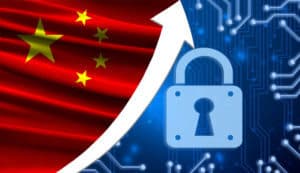
2018-7-31 19:50 |
International trade, people without identity and financial exclusion are global development areas that stand to be radically improved with blockchain technology, according to Michelle Chivunga, regional advisor for the British Blockchain Association.
“I’m quite keen to help people in understanding what the potential of blockchain is,” said Chivunga in an interview with Bitcoin Magazine. “And at the same time I’m also quite passionate and I’ve done quite a bit of work and involvement with women’s economic empowerment programmes, working with different groups from UN women to the World Bank and a whole range of other organizations.”
“I’m also focused on emerging markets and nations as there are a lot of opportunities for technology to help,” she added.
Chivunga highlighted the plight of the financially excluded as a major area of global development where blockchain technology could bring unprecedented improvement: “I think it’s really important that we look at how we can use blockchain to help fund financial inclusion to help with access to digital assets that people have control over, rather than having central authorities controlling this.
“We want people who have control of their money and control of their own data. It’s absolutely significant because I think in my world, data is like the new money. If you can manage it and almost control use of your data, there’s a lot more power that you hold as well, so there’s that side of things as well. I think that’s absolutely critical.”
In a world where international trade has come under fire, she sees blockchains as being a much needed antidote to the potential damaging consequences of a global trade war.
“I’m a big promoter of international trade and opportunities for countries to export and interact.”
The increased visibility throughout the supply chain promotes trust and means governments can more easily protect consumers while businesses can safely do business with more reliable trading documents.
The World Economic Forum states that “with further investment and experimentation, blockchain could potentially hide confidential information to protect the interests of trading parties — pricing information, for example.”
“Take Africa, for example, we want to encourage a lot more interregional trade,” said Chivunga. “We can try and look at doing that by tapping on blockchain again because blockchain allows that opportunity for transparency and opportunities to have a more cost effective way of trading and doing business between different markets. So there’s massive potential there.”
Adding blockchain to the trading process has proven to reduce time spent completing trade-finance deals. What can now take a week to 10 days to complete could take just a couple of hours using blockchain technology, driving efficiencies that stand to transform not only emerging markets such as Africa but global markets as well.
Solving Identity Issues“A further area I see is, of course, identity,” Chivunga added, “which is absolutely huge and very very important because we have a lot of problems with refugees, with human trafficking, modern slavery. A lot of this does boil down to a lack of identity and people almost taking advantage of that, which leads to things like human trafficking.”
An astounding 14 percent of the global population, 1.1 billion people, are without identification, according to a 2017 report by the World Bank.
“If we are able to record the births of a nation,” Chivunga said, “we know how many children are born; they’ve got their identity that’s recorded on the blockchain. They can be tracked.”
She points out that “this is not tracking as in ‘Big Brother is watching you.’ It’s completely different in the sense that we’re able to use that data, even using machine learning or AI, to analyze that data for health needs or policy, or a whole range of other areas. We could make evidence-based decisions which we can use to plan ahead and foster solutions that are a bit more tailored. And really, people who are right at the bottom are the ones that do need that social change.”
Alongside the 14 percent of the world’s population that remains unidentified, there are scores of people who are lost to modern slavery — an estimated 24.9 million victims, according to a September 2017 report from the International Labour Organisation (ILO) and Walk Free Foundation.
However, Chivunga believes blockchain-based technology carries some promise for freedom and positive change with its potential for securely tracking and storing people’s identity.
So what’s the key to unravelling the potential of the blockchain to where it becomes a global solution to some of the world’s worst problems?
“We have to have more education around separating bitcoin from blockchain technology, and also education around how blockchain can actually be used and by whom,” says Chivunga. “It’s not a magic wand, and we have to be quite cautious about how we throw in the hype.
This article originally appeared on Bitcoin Magazine.
Similar to Notcoin - Blum - Airdrops In 2024
High Performance Blockchain (HPB) íà Currencies.ru
|
|






















